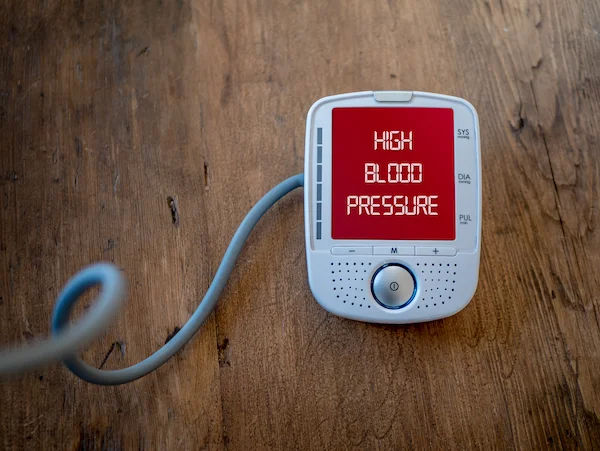Find Your Life's Powerful Beat: A Guide to Rhythmic Living
Discover how aligning with your body's natural rhythm enhances health, energy, and emotional balance. Learn science-backed steps to find your life's powerful beat.

Written by Dr. Rohinipriyanka Pondugula
Reviewed by Dr. Shaik Abdul Kalam MD (Physician)
Last updated on 13th Jan, 2026
.jpg?tr=q-80,f-webp,w-350,dpr-2,c-at_max 700w)
Introduction
Life isn't a static picture; it's a dynamic piece of music. At its best, it has a powerful, steady beat—a rhythm that carries us through our days with energy, purpose, and resilience. This isn't just a poetic idea; it's rooted in the fundamental biology of our existence. Every cell in our body operates on a cycle, from the beating of our hearts to the ebb and flow of our hormones. Understanding and aligning with this intrinsic rhythm is the key to unlocking a healthier, more harmonious life. This guide will explore the science behind your body's natural cycles, illustrate how a powerful rhythm enhances your physical and mental well-being, and provide practical, actionable steps to help you find and maintain your own unique beat, transforming the cacophony of a chaotic life into a symphony of success and satisfaction.
What is Life's Rhythm? More Than Just a Metaphor
When we talk about being "in a groove" or feeling "out of sync," we're intuitively describing a real physiological state. Your life's rhythm is the predictable, recurring pattern of biological processes that govern your body's functions. It's the internal maestro conducting the orchestra of your health.
The Science of Your Internal Clocks
The master conductor of this symphony is a tiny region in your brain called the suprachiasmatic nucleus (SCN). This is your primary "master clock," and it coordinates all the peripheral "clocks" found in every organ and tissue—from your liver managing metabolism to your digestive system processing food. These clocks are regulated by genes that turn on and off in a 24-hour cycle, creating a complex, interconnected rhythm of life that is essential for survival.
Circadian Rhythm: Your 24-Hour Conductor
The most critical of these cycles is your circadian rhythm. Derived from the Latin words circa (around) and diem (day), it’s your body’s internal 24-hour timer. It’s highly influenced by external cues, especially light and darkness. When light enters your eyes in the morning, it signals the SCN to suppress the sleep hormone melatonin and ramp up cortisol, making you alert. As darkness falls, the SCN triggers melatonin production, preparing you for sleep. This daily cycle is the fundamental powerful beat upon which all other health rhythms are built. Disrupting it is like asking an orchestra to play without a conductor—the result is dissonance and poor performance.
The Symphony of Well-Being: How Rhythm Powers Your Health
Living in alignment with your natural cycles isn't just about feeling good; it's about optimising your body's core functions. A consistent powerful beat leads to a symphony of health benefits.
Sleep-Wake Cycle: The Foundation of Your Beat
A regular sleep schedule is the most direct way to strengthen your circadian rhythm. When you go to bed and wake up at consistent times, even on weekends, you reinforce your body's internal clock. This leads to deeper, more restorative sleep, which in turn improves memory consolidation, cellular repair, and immune function. Conversely, irregular sleep patterns, a common sign of a discordant rhythm, are linked to a higher risk of chronic conditions. If you consistently struggle with sleep despite maintaining a schedule, it may be helpful to consult a doctor online with Apollo24|7 to rule out underlying sleep disorders.
The Heart of the Matter: Cardiovascular and Metabolic Harmony
Your cardiovascular system also follows a daily rhythm. Blood pressure and heart rate naturally dip at night during sleep. When your sleep-wake cycle is disrupted, this dip may not occur, putting extra strain on your heart over time. Similarly, your metabolism is timed to be most efficient during the day. Eating late at night, when your body expects to be fasting, can lead to poor glucose control and weight gain. Aligning your meal times with your active hours is a key part of maintaining a healthy lifestyle rhythm.
Consult Top Specialists for Personalised Tips
Mental and Emotional Cadence
Your mental state is profoundly affected by your biological rhythm. A stable cycle regulates the stress hormone cortisol and neurotransmitters like serotonin and dopamine, which influence mood, focus, and emotional resilience. People with irregular routines often report higher levels of anxiety, brain fog, and irritability. By establishing a powerful beat, you create a stable internal environment that supports mental clarity and emotional balance.
Diagnosing a Discordant Rhythm: Signs You're Out of Sync
How do you know if your life's music is off-key? Look for these common signs of a disrupted rhythm:
Constant Fatigue: Feeling tired regardless of how long you sleep.
Difficulty Concentrating: Brain fog and an inability to focus.
Digestive Issues: Irregular bowel movements or appetite changes.
Mood Swings: Increased irritability, anxiety, or feelings of depression.
Poor Sleep Quality: Tossing and turning at night or waking up frequently.
Weakened Immunity: Getting sick more often.
These symptoms can sometimes indicate other health issues. If your condition does not improve after trying to regulate your routine, booking a physical visit to a doctor with Apollo24|7 can provide a comprehensive evaluation.
Tuning Your Instrument: Practical Steps to Find Your Beat
Reclaiming your rhythm is a gradual process of tuning your daily habits to your biology. Here’s how to start composing your powerful beat.
Master Your Morning Cadence
Sunlight First: Within an hour of waking, get 5-15 minutes of natural sunlight. This is the strongest signal to reset your master clock.
Consistent Wake-Up Time: Wake up at the same time every day, even on weekends. This is more important than a consistent bedtime for setting your rhythm.
Hydrate: Drink a large glass of water to rehydrate after a night's sleep and kickstart your metabolism.
Harmonise Your Daily Activities
Schedule Tough Tasks for Peak Hours: Most people experience a peak in alertness in the late morning. Schedule your most demanding cognitive work during this window.
Time Your Meals: Aim to eat your meals at roughly the same times each day. Try to make breakfast and lunch your largest meals, and have a lighter, earlier dinner.
Move Your Body: Regular exercise, even a 30-minute walk, can help reinforce your daily rhythm. Just avoid intense workouts too close to bedtime.
Compose a Restorative Evening Ritual
Dim the Lights: As evening approaches, reduce your exposure to blue light from screens. Use night mode settings or, ideally, stop using devices 1-2 hours before bed.
Create a Wind-Down Routine: Signal to your body that it’s time to sleep with calming activities like reading a book, taking a warm bath, or practising light stretching.
Keep it Cool and Dark: A cool, dark, and quiet bedroom environment is essential for triggering the release of melatonin.
When the Music Stops
Life happens, and sometimes our rhythm gets thrown off. Jet lag, shift work, periods of stress, or social events can create "social jet lag," where your weekend schedule is vastly different from your weekday one. The key is not to panic but to be intentional about resynchronising. After a disruption, focus extra hard on the core anchors: morning sunlight, consistent wake time, and meal schedules. It may take a few days to get back in sync, but your body will thank you for the guidance.
Conclusion
Finding your life's powerful beat is a journey of self-awareness and intentional living. It’s about moving from being a passive listener to the chaotic noise of modern life to becoming the active conductor of your own well-being. By understanding the science of your circadian rhythm and implementing simple, consistent habits, you can transform your health from the inside out. This guide to rhythm isn't about adding more to your to-do list; it's about aligning with the natural cycles that already exist within you. When you find that sync, you unlock a reservoir of energy, clarity, and resilience that makes life not just manageable, but truly harmonious. Start today by choosing one small ritual—perhaps a morning walk or a digital sunset—and begin composing the symphony of your best life.
Consult Top Specialists
Consult Top Specialists for Personalised Tips

Dr. Anand Ravi
General Physician
2 Years • MBBS
Bengaluru
PRESTIGE SHANTHINIKETAN - SOCIETY CLINIC, Bengaluru

Dr. Vivek D
General Physician
4 Years • MBBS
Bengaluru
PRESTIGE SHANTHINIKETAN - SOCIETY CLINIC, Bengaluru

Dr Syed Mateen Pasha
General Physician
2 Years • MBBS
Bengaluru
PRESTIGE SHANTHINIKETAN - SOCIETY CLINIC, Bengaluru

Dr. Syed Ismail Ali
General Practitioner
7 Years • MBBS
Hyderabad
Apollo 24|7 Clinic, Hyderabad

Dr. Ritesh Motghare
General Practitioner
18 Years • MBBS PGCDM
Nagpur
HEALTH CENTRE VNIT NAGPUR, Nagpur
Consult Top Specialists

Dr. Anand Ravi
General Physician
2 Years • MBBS
Bengaluru
PRESTIGE SHANTHINIKETAN - SOCIETY CLINIC, Bengaluru

Dr. Vivek D
General Physician
4 Years • MBBS
Bengaluru
PRESTIGE SHANTHINIKETAN - SOCIETY CLINIC, Bengaluru

Dr Syed Mateen Pasha
General Physician
2 Years • MBBS
Bengaluru
PRESTIGE SHANTHINIKETAN - SOCIETY CLINIC, Bengaluru

Dr. Syed Ismail Ali
General Practitioner
7 Years • MBBS
Hyderabad
Apollo 24|7 Clinic, Hyderabad

Dr. Ritesh Motghare
General Practitioner
18 Years • MBBS PGCDM
Nagpur
HEALTH CENTRE VNIT NAGPUR, Nagpur
More articles from General Medical Consultation
Frequently Asked Questions
I'm a night owl. Can I really change my natural rhythm?
Yes, to a significant degree. While your 'chronotype' (whether you're a morning lark or night owl) has a genetic component, it's highly influenced by habits. By gradually shifting your wake-up time earlier and getting bright light first thing in the morning, you can train your body to adapt to an earlier schedule.
What's the single most important thing I can do to improve my life's rhythm?
Prioritise a consistent wake-up time. This single habit acts as the anchor for your entire 24-hour cycle. Waking at the same time every day, even if you slept poorly, is more effective for regulating your clock than focusing solely on a consistent bedtime.
How long does it take to reset a disrupted circadian rhythm?
For most people, it takes about one day per time zone crossed to recover from jet lag. For general rhythm disruptions (like social jet lag), you can often resynchronise within 3-4 days by being strict with your light exposure, meal times, and sleep schedule.
Can what I eat affect my body's rhythm?
Absolutely. Eating late at night sends conflicting signals to your liver's clock, which is expecting a fasting period. This can disrupt blood sugar regulation and sleep. Try to finish eating 2-3 hours before bedtime for better metabolic harmony.
When should I be concerned about my sleep cycle?
If you've consistently practised good sleep hygiene for several weeks but still experience severe insomnia, excessive daytime sleepiness, or suspect a condition like Delayed Sleep Phase Syndrome or Shift Work Sleep Disorder, it's wise to seek professional advice. You can consult a sleep specialist online with Apollo24|7 for an initial assessment.




